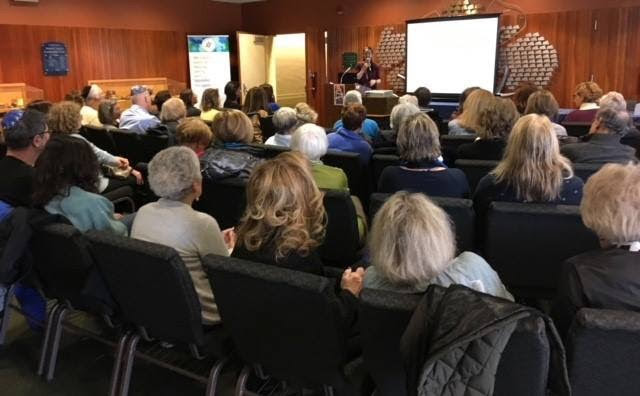For most
kids, when they think of their favorite childhood memory, it usually takes
place at a baseball game, or, for the other half of you, a hockey game, or a
celebration of some sort. But for me, my favorite childhood memory took
place when I was about eight years old, at, of all places, the allergist.
My mom had
prepared eggs at home and brought them in a little purple container, and in
front of my doctor, I took my first real bite of eggs. I ate a little bit
– and we waited. Then a little more, and we waited. In all, we were there for
over three hours. And in the end, the doctor declared me allergy free. My
last remaining food allergy had cleared up.
Since birth,
I had been unable to eat eggs, soy, wheat and dairy. On the other hand, I
could eat peanuts! It was bad. I had to carry my own snacks to parties. For 8
years my mom had to bake egg free hallah for me. My family would buy a
regular hallah and I would just have a roll. One time my mom, after learning
how to bake without eggs, made an eggless hallah and said, “We’re all going to
eat it together.” For the first time, I was not separate with my roll. I
cried.
So I’ve come
to appreciate food in a special way.
It’s fitting
that my portion of Sh’mini contains the laws of Kashrut, explaining how the act
of eating can help us to live holy lives. My portion tells us which kinds
of animals are considered acceptable. For instance, a cow is kosher, a lion is
not. By the way, breaking news: bacon is not kosher.
But kosher
is not just about what you can or can’t eat. It’s about acting with
kindness toward animals and having reverence for life. Kosher animals
have to be killed painlessly. Also, these laws help us to understand that we
are what we eat. We don’t eat birds of prey, like vultures or eagles,
because eating then would make us more violent. We tend to eat docile animals
like chickens, or cows.
At my house
we say, “food is medicine.” We have to be mindful of what we put into
your body and its impact on us. I learned that from my allergies.
There’s also
a social element to kashrut. All the holiday foods bring families
together, as we just saw with our Passover Seders. Cooking and mealtime
at my house are very important.
Dinner is my
favorite time of day. I’ve even prepared our family dinner with my brother
several times. Eating together is very important for my family. It’s
always been a priority. No TV is in the room, no phones are allowed at the
table. I savor these meals – in fact, I’m always the last to leave the
table.
Speaking of
the table, in my house, it’s all about the table. The table is so important in
my house, that we switched the living room with the dining room so that we
could make room for a bigger table.
So the
dining room has become the room where we spend the most time. Our lives
revolve around it. It’s where my day begins and where my favorite part of the
day happens. Several times a week, my family hangs around the table after meals
to play board games.
Because of
my history of allergies, when I go to a new restaurant, I sometimes get nervous
about the food. In fact, I get nervous about a lot of things. A lot of
people in my family get nervous! But for me, it’s something I’ve been fighting
for a long time. So for my Mitzvah Project, I chose to sell bracelets
with individualized messages for people – words to comfort and inspire them.
They are called “My Intent” bracelets. I’m going to be creating each
bracelet made to order. The proceeds of this mitzvah project will go toward the
Cystic Fibrosis Walk. My family has been participating in it for the last
several years.
So I hope
you all now understand why food is so important both to me and in the Torah.
As they say, “Noshing is sacred.”

